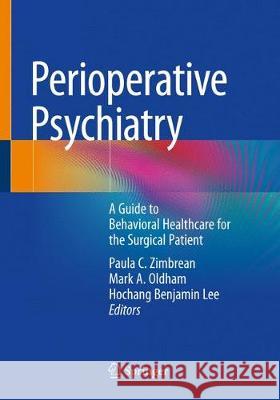Perioperative Psychiatry: A Guide to Behavioral Healthcare for the Surgical Patient » książka
topmenu
Perioperative Psychiatry: A Guide to Behavioral Healthcare for the Surgical Patient
ISBN-13: 9783319997735 / Angielski / Miękka / 2019 / 297 str.
The volume dedicates one section to specific subspecialties, including cardiac surgery, neurosurgery, organ transplantation, plastic surgery, bariatric surgery, and many others.











